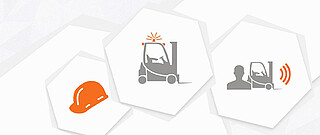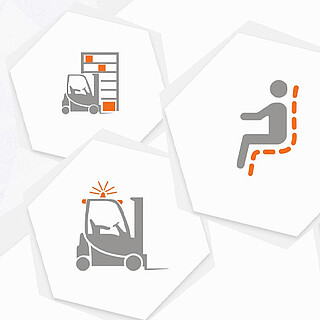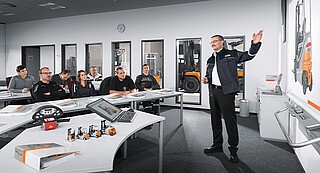Forklift Truck Servicing - Getting Your Forklift Fleet Ready for Winter

Forklift truck servicing is an essential part of operating a forklift fleet at maximum efficiency and productivity. But with a cold winter on the way, the task can become difficult and even dangerous as unforeseen hazards can roll in with the weather. To keep your operators safe and your fleet operating smoothly as the temperature begins to drop, you need to make sure your forklift truck fleet is maintained and prepared. Ice, snow, rain and shorter days can all pose additional hazards in logistics but, with some pre-planning, you can mitigate many of these and keep your operation running smoothly.
In this article, we’re going to go through some key points that will allow your business to continue operating at peak efficiency during the colder months.
Check the weather forecast
Although it may seem obvious, checking the weather forecast before operating a forklift outdoors is essential in ensuring safety and work optimisation. If the weather isn’t looking too pleasant, you will likely need to prioritise safety and determine what jobs can be undertaken. If high winds are forecast, working at height may need to be postponed or brought forward, and outdoor reach trucks may need to be parked or operated with extreme caution. Fog, wind, icy surfaces and heavy rain can all impact a driver’s vision and the way the forklift truck handles and responds, so forward planning around the weather forecast should be the first step for any company.
Forklift truck servicing and assistance systems

Forklift truck servicing is a vital aspect of ensuring safety in the workplace and should be paramount to any logistics operation. Each shift should begin with a series of daily checks to make sure vehicles will operate at maximum efficiency and that any defects are logged and quickly rectified.
Winter checks will include some additional elements which may not need to be as frequent in the summer. These can include making sure anti-freeze is topped up (both in the engine and the windscreen wash if applicable), ensuring that tyres are in good condition for driving on wet or icy surfaces, and checking that lights are working correctly before the truck moves into a low visibility area.

STILL’s smart driver assistance systems not only continuously monitor the environment, helping to provide guidance for drivers, but can also actively intervene in certain events. They recognise potentially critical driving situations and are able to accelerate and decelerate independently, while also providing top performance with the highest level of energy efficiency.
Forklift truck accessories

Having a suitable, well-maintained forklift truck is one thing, but even when fully optimised you may require some additional hardware when the temperature drops and the daylight hours get shorter. This is where forklift accessories can prove invaluable. These can range from safety lights or tyre chains to driver comfort features and high vis gear, all of which can be stored easily and integrated as and when required.
Make sure your forklift operators are properly trained

Ensuring that your drivers are fully trained to operate the vehicles in all weather conditions not only benefits the overall productivity of your business, but also the safety of everyone involved. Frequent training sessions can help prepare your team for seasonal issues like bad traction or the loss of visibility caused by wet, icy winter weather. These training sessions can also improve their confidence behind the wheel of a forklift, which in turn leads to safe and efficient operation all year round, regardless of the seasonal weather.
Keep an eye on your batteries
If you operate electric forklift trucks, you may need to account for the cold weather when planning operating times. Batteries drain more quickly in colder weather and can take longer to charge if your charging area isn’t climate controlled, so you may need to adjust your charging schedule to allow for this. Given the increase of wet weather in the winter months, it’s also important to make sure that batteries and electric components are kept dry, with all covers closed to avoid damage and corrosion to charging ports or internal electrics.
Still Have Queries?
If you have any questions or queries regarding forklift safety or anything relating to forklifts, please feel free to contact us today, and speak to one of our many experts.
Comments
No comments
Subscribe to our blog!
As soon as a new article is published, we will notify you! You can unsubscribe at anytime.

Leave a comment